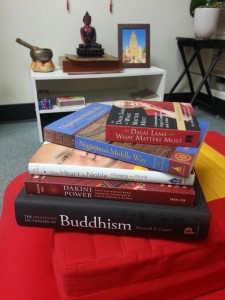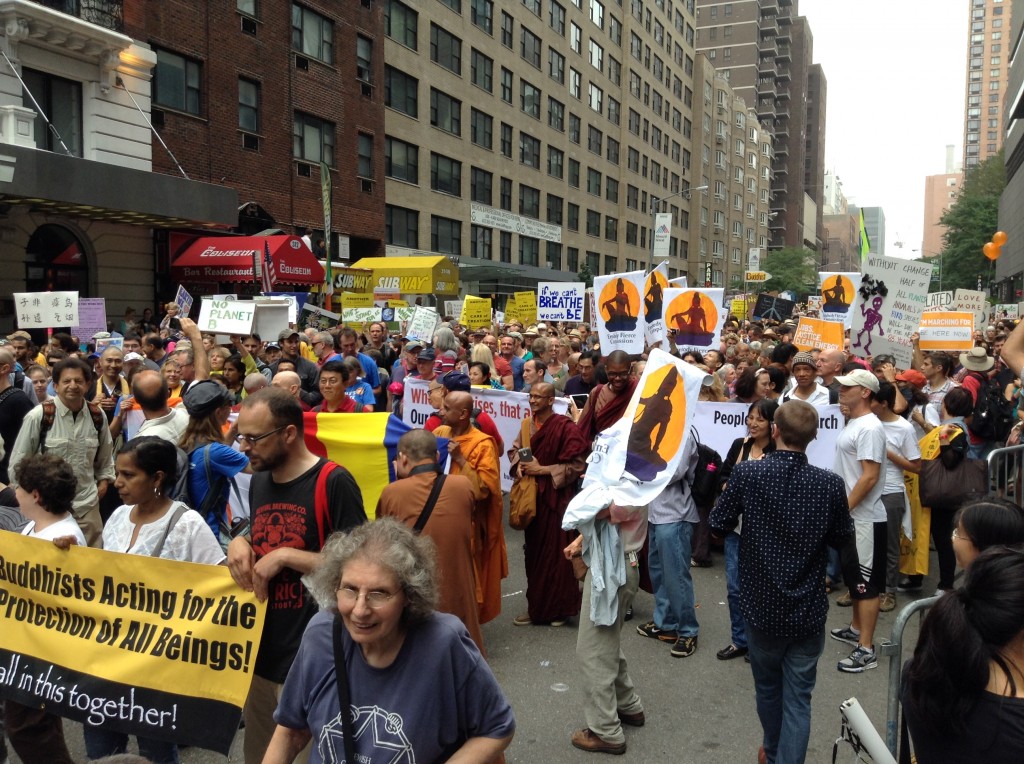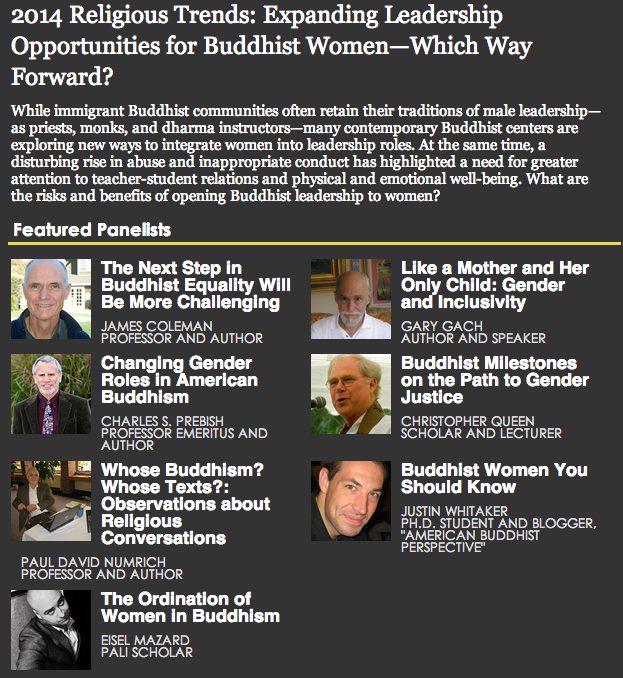 Continuing the end-of-the-year lists for 2013, here are five of my favorite dharma books from 2013. (Unlike my list of five favorite films, I haven’t ranked these — they’re just listed alphabetically again this year just as they were last year.) Once again, I find that five is a hard number for trying to represent a broad spectrum of Buddhist traditions and perspectives — for example, there’s not really a title from the Theravada/Insight perspective this year (though both Mindfulness: A Practical Guide to Awakening by Joseph Goldstein and The Birth of Insight: Meditation, Modern Buddhism, and the Burmese Monk Ledi Sayadaw by Erik Braun would certainly be on the list if I were doing a “top ten”) — but I think it’s probably better to keep these things short and sweet. Every year will undoubtedly be different, too. Besides, I really want to know what your favorites were this year too, and I hope you’ll share them with us in the comments of this post.
Continuing the end-of-the-year lists for 2013, here are five of my favorite dharma books from 2013. (Unlike my list of five favorite films, I haven’t ranked these — they’re just listed alphabetically again this year just as they were last year.) Once again, I find that five is a hard number for trying to represent a broad spectrum of Buddhist traditions and perspectives — for example, there’s not really a title from the Theravada/Insight perspective this year (though both Mindfulness: A Practical Guide to Awakening by Joseph Goldstein and The Birth of Insight: Meditation, Modern Buddhism, and the Burmese Monk Ledi Sayadaw by Erik Braun would certainly be on the list if I were doing a “top ten”) — but I think it’s probably better to keep these things short and sweet. Every year will undoubtedly be different, too. Besides, I really want to know what your favorites were this year too, and I hope you’ll share them with us in the comments of this post.
* * *
* Dakini Power: Twelve Extraordinary Women Shaping the Transmission of Tibetan Buddhism in the West by Michaela Haas
A two-time interviewee and a dear friend, Michaela Haas (who gifted me with a copy of the book) has produced an extraordinary volume with Dakini Power: a history and modern hagiography (in the best sense) of several women who have been important in terms of bringing Tibetan Buddhism to the Western world — among them, Pema Chödron, Khandro Rinpoche, Thubten Chödron, Lama Tsultrim Allione, Roshi Joan Halifax, and others. As engaging and inspiring as it is informative, this is a uniquely wonderful book that should prove to play a large role in encouraging and helping to develop more Buddhist leaders who are women. We should all be very grateful indeed to Dr. Haas.
* The Dalai Lama on What Matters Most: Conversations on Anger, Compassion, and Action by Noriyuki Ueda
Japanese cultural anthropologist Ueda’s lively, book-length conversation with His Holiness the Dalai Lama is an essential in its excellent, way-better-than-average questions and equally exciting answers. For those of us interested in the intersection of social justice and Buddhism, there are quite a few magnificent exchanges here, as well as some forceful statements from His Holiness. Here’s one we highlighted last year: “When faced with economic or any other kind of injustice, it is totally wrong for a religious person to remain indifferent. Religious people must struggle to solve these problems.” This is a quick, supremely pleasant read that stays with the reader and forever ups the ante on conversations with Buddhist leaders.
* The Heart is Noble: Changing the World from the Inside Out by His Holiness the 17th Karmapa, Ogyen Trinley Dorje
Just as Ueda’s conversation with His Holiness the Dalai Lama raises the bar for interviews, His Holiness the Karmapa’s book (which Shambhala Publications provided me with a free copy of) raises the bar for books by Buddhist leaders. Ranging from issues of person spirituality (such as meaningful living and healthy relationships) to larger social concerns (such as climate change, food justice, gender and sexuality, consumerism and inequality, and so on), His Holiness teaches us that our vision of practice must be larger than simply our own lives. More importantly, he makes the connection between personal practice and global suffering in a gentle, compelling way. A lot of expectation is on the shoulders of this young teacher, and, if this book is any indication, he’ll have no problem at all living up to it.
* Nāgārjuna’s Middle Way: Mūlamadhyamakakārikā by Mark Siderits and Shoryu Katsura
With several excellent translations of Nāgārjuna’s masterpiece already available, what sets Siderits and Katsura’s translation apart? Its synthesis of a lot of important scholarship, its accessibility, and its thoroughness for starters. Scholar and practitioner-friendly, this is now, as blurb writer and Buddhologist Dan Arnold says, “the go-to translation of one of the most important works of the Indian Buddhist philosophical tradition.” Bravo, gentlemen — you’ve done a great service to those who care about Buddhist thought. And bravo also to Wisdom Publications, whose Classics of Indian Buddhism series just keeps getting better and better.
* The Princeton Dictionary of Buddhism by Robert E. Buswell, Jr., and Donald S. Lopez, Jr.
“5,000 entries.” “Over a million words.” The first such volume to “cover terms from all canonical Buddhist languages and traditions,” as well as “selected terms and names in Thai, Burmese, Vietnamese, Lao, Khmer, Sinhalese, Newar, and Mongolian.” Assembled by two of the titans of modern Buddhist Studies. Need we say more? Like Siderits and Katsura’s translation of the Mūlamadhyamakakārikā, this is an absolutely indispensable new resource for scholars, practitioners, and scholar-practitioners alike. Ever year brings us exciting and important new dharma books and works of Buddhist Studies, but I have a feeling that 2013 might be remembered as the Year of The Princeton Dictionary of Buddhism.











